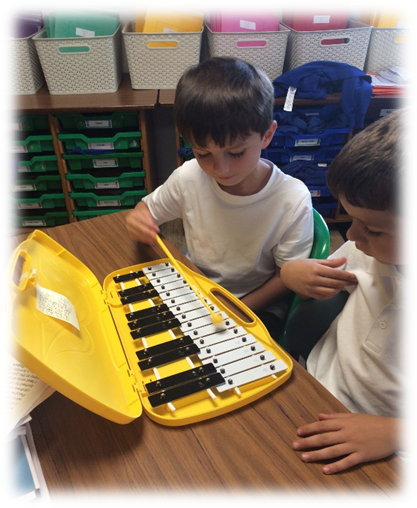Music
Rationale
At St Anthony’s, music helps pupils to encounter beauty, creativity, and expression as part of God’s world. It develops the whole child by fostering imagination, discipline, and joy through performance and composition. Pupils explore the richness of musical traditions from different cultures and times, learning that music is a universal language which unites people. Rooted in the dignity of every human person, music cultivates respect for others’ voices and traditions, and through solidarity, pupils learn the power of music to bring communities together. Music at St Anthony’s nurtures curiosity, creativity, and mission, preparing pupils to use their gifts for the service of others and to experience music as an expression of faith and praise.
Intent
Our music curriculum, following the Kapow scheme, inspires creativity, builds technical skill, and nurtures a love of music. It provides a carefully sequenced, knowledge-rich learning experience aligned with the National Curriculum, enabling pupils to perform, compose, listen, and evaluate across a wide variety of musical styles and traditions.
Core principles include:
• Nurturing virtuous individuals who recognise music as a gift from God and use it to build community.
• Inspiring high achievement and a love of performing, composing, and appreciating music.
• Promoting collaborative learning where pupils listen to and respect the contributions of others.
Key Stage 1: Pupils explore pulse, rhythm, and pitch through singing, body percussion, and tuned/untuned instruments. They listen to a range of styles and begin simple compositions.
Key Stage 2: Pupils deepen knowledge of musical notation, structure, and form while exploring music from different periods and cultures. In Year 4, pupils receive ukulele tuition through Solihull Music Service, and in Year 6, pupils learn guitar. Performance and ensemble opportunities feature throughout.
Implementation
• Lessons are sequenced within Kapow to ensure clear progression from KS1 to KS2.
• Pupils engage in practical music-making, including singing, playing instruments, improvising, and composing.
• Listening activities broaden exposure to diverse genres and traditions.
• Cross-curricular links with RE, History, and Geography highlight music’s role in culture and worship.
• Specialist tuition (ukulele and guitar) supports instrumental proficiency and ensemble performance.
Impact
By the end of primary education, pupils will:
• Have secure knowledge of musical elements (pitch, rhythm, dynamics, tempo, timbre, structure, notation).
• Demonstrate skill in singing, performing on instruments, and composing.
• Listen critically and with enjoyment to music from a wide range of times and places.
• Perform with confidence and collaborate respectfully as part of ensembles.
• Recognise the value of music as an expression of culture, faith, and community.
Assessment
• Each lesson includes opportunities to revisit prior learning through short recall tasks.
• Pupils reflect on key enquiry questions and musical elements to consolidate knowledge.
• End-of-unit performances or compositions assess understanding, creativity, and technical skills.
• Both formative and summative assessments ensure progress is monitored, supported, and celebrated.
SEND Support Statement
In teaching the Kapow music curriculum for KS1 and KS2, we prioritise quality first teaching alongside adaptive strategies to support all learners, including those with SEND. Lessons are carefully differentiated to meet individual needs, incorporating visual supports, scaffolded tasks, repetition, and hands-on activities. By adjusting pace and expectations, and by providing alternative ways of responding (e.g. through movement or instruments), we ensure every pupil can experience success and joy in music.

